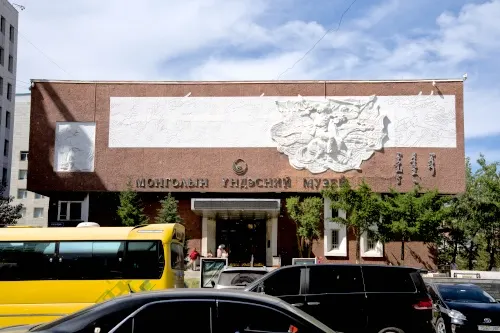
On day 3 of our trip to Mongolia, we visited the National Museum of Mongolia in Ulaanbaatar to understand Mongolia's culture and history better.
Upon arrival, our tour guide, Enerel, arranged to purchase the entrance ticket, and I also paid for the additional 20000₮ as a photography fee so that I could take photographs inside the museum.
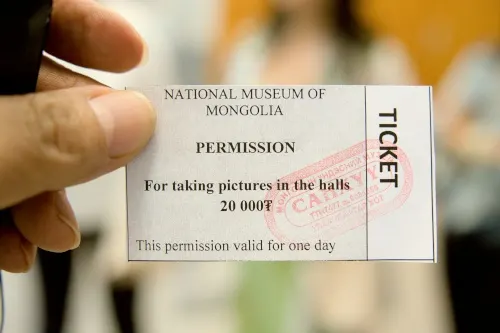
There are so many things to study and delve deep into, but since we only had about an hour in the museum, our guide focused on showing us the most important things and explaining them whenever possible.

Exhibition halls in the museum:
The museum has 9 main exhibition halls in the National Museum of Mongolia, covering everything from ancient Mongolian history to traditional clothing and jewelry, as well as the life and culture of present-day Democratic Mongolia.
- Hall 1: Mongolia's ancient history from 800,000 BC to 300 BC, focusing on stone tools and objects used for rituals or religious ceremonies.
- Hall 2: Artifacts related to ancient states established from the 3rd century BC to the 12th century, including the powerful empire set up by the Hunnu people.
- Hall 3: Traditional clothing and jewelry from Mongolia's ethnic groups, including ceremonial attire, seasonal dress, and accessories.
- Hall 4: The Mongolian Empire, including the time of Chinggis Khan and his successors, historical military equipment, and artifacts from the ruins of Kharakhorum.
- Hall 5: Mongolian traditional culture tied to the nomadic lifestyle, including items of spiritual importance, manuscripts, musical instruments, and more.
- Hall 6: Mongolian traditional life, focusing on the nomadic lifestyle, including a furnished ger and tools for cattle breeding, hunting, and agriculture.
- Hall 7: Covering the period from the 17th to the early 20th centuries when Mongolia was under Manchu rule.
- Hall 8: Information about Socialist Mongolia (1921-1990), influenced by socialist ideology.
- Hall 9: Democratic Mongolia, beginning in 1990 with a peaceful revolution that transformed the country into a democratic state.
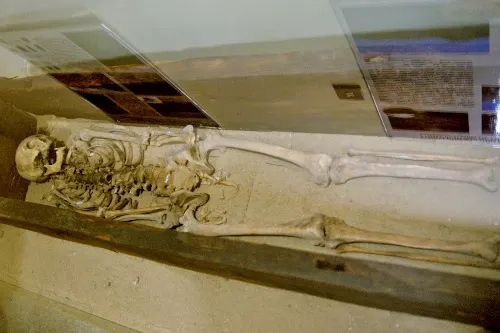
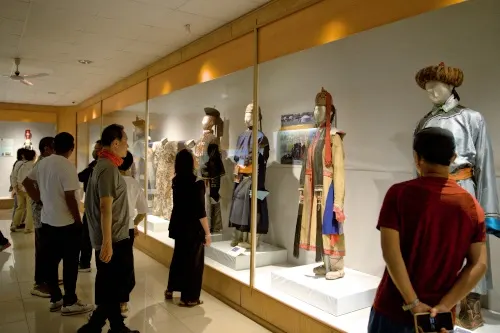
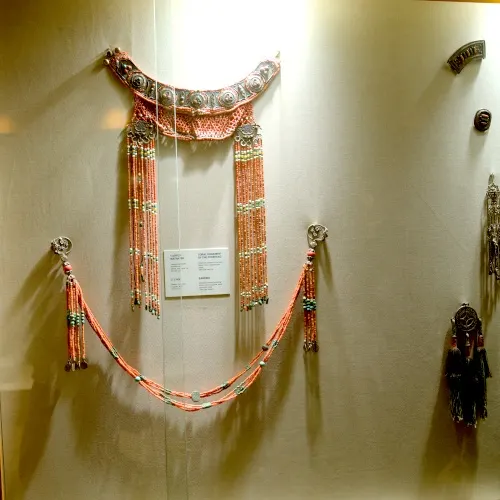
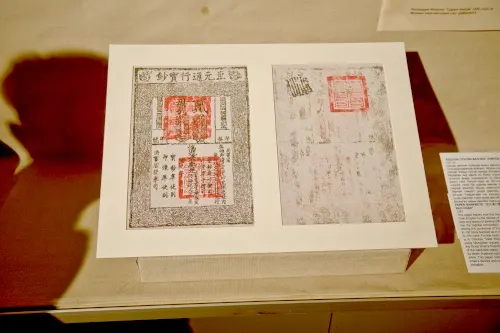

The key exhibits at the museum are:
- Gold Treasure: A golden tiara discovered in 2001 by archaeologists near the Kul-Teginii Monument in Övörkhangai.
- Actual examples of 12th-century Mongol armor.
- Correspondence between Pope Innocent IV and Guyuk Khaan.
- A furnished ger, traditional herding, domestic implements, saddles, and musical instruments.
- Sükhbaatar's hollow horsewhip and Jügderdemidiin Gurragchaa's cosmonaut suit.
- Stone Age sites, petroglyphs, deer stones, and burial sites from the Hun and Uighur eras provide a glimpse into Mongolia's prehistoric past.

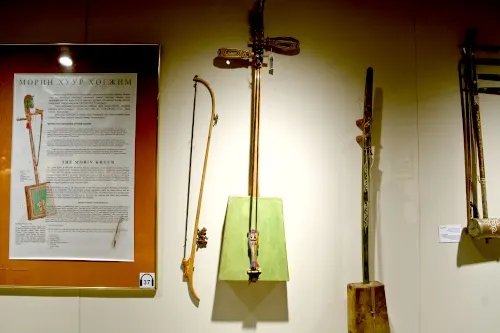
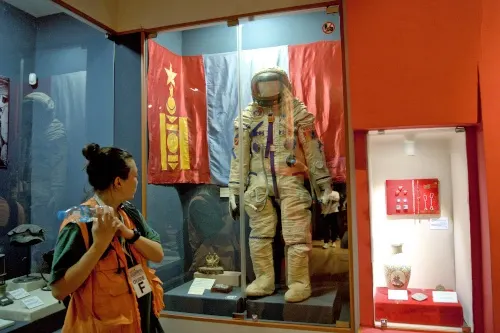
Jügderdemidiin Gurragchaa's was the first Mongolian and second Asian to enter space. He launched aboard Soyuz 39 on March 22, 1981, with Soviet cosmonaut Vladimir Dzhanibekov.
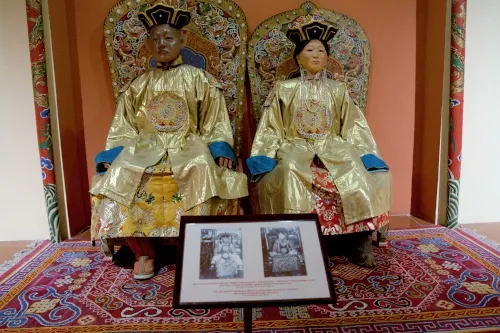
More about the museum
The establishment of the National Museum of Mongolia dates back to 1924. The current building, constructed in 1971 as the Museum of Revolution, was later renamed the National Museum of Mongolia in April 2008.
The museum has a vast collection of over 57,000 objects related to the history of Central Asia and Mongolia. It covers the period from prehistory to the end of the 20th century, including prehistory, the Mongol Empire, Mongolia during Qing rule, ethnography, and traditional life.
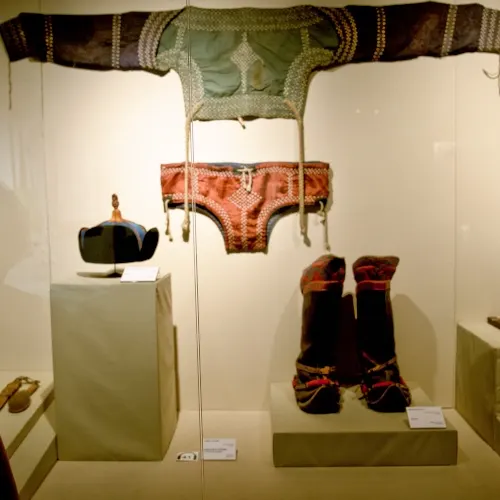
Visitor Information
From May 15th to September 15th, the museum is open every day from 9:00 a.m. to 9:00 p.m. The ticket office operates from 9:00 a.m. to 7:30 p.m., with the last entrance at 7:30 p.m. The admission fees are as follows:
- Adults: 20000₮
- Students: 10000₮
- Children aged 0-16 can enter for free.
- Guided tours are available in Mongolian and English but require a minimum of 10 visitors, so please book in advance. Photography charges are 20000₮, and audio guides in English are available for 8000₮.
🎞️ Watch our video shot during the festival
Please watch the video we made for our trip on YouTube. As below:
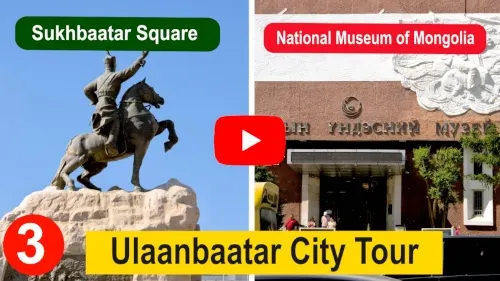
We have published a series of articles about Mongolia. To check them out, just click on this link.
Our tour is organized by Go Holiday 360 Sdn Bhd. You can contact them by visiting their website.
